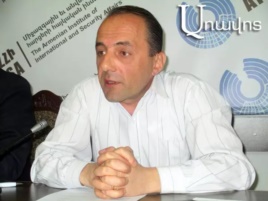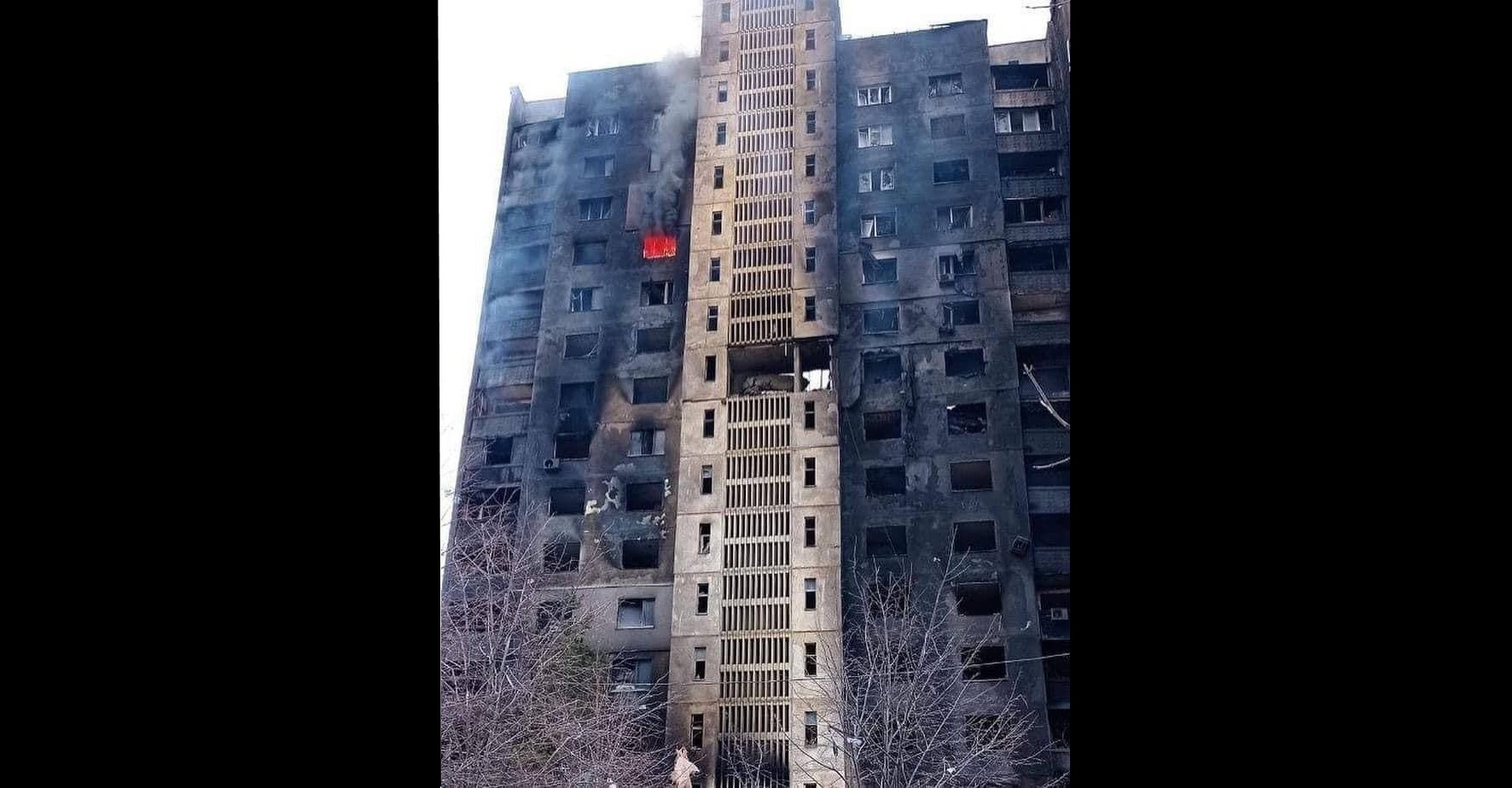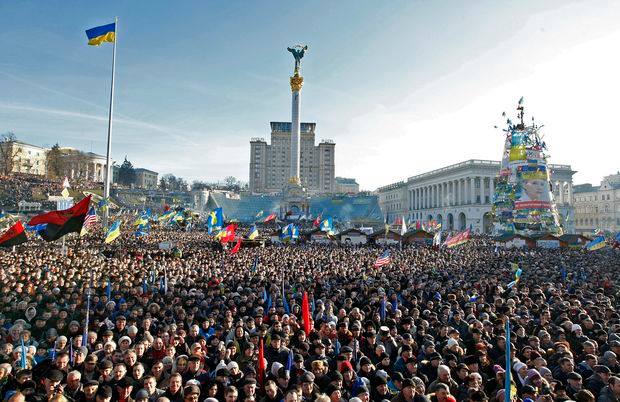For several days now the media has been discussing the unprecedented renewal of hostilities of the Nagorno-Karabakh. Not since 1994 have we seen such human casualties on both sides. At the same time, each side accuses the other of escalating tensions into violent clashes. In an effort to understand the reasons behind the conflict, Krym.Realii spoke with both Azerbaijani and Armenian experts.
Orhan Gafarli, analyst with the Center for Political Studies in Ankara, Türkiye, and an Azerbaijan expert at the Jamestown Foundation’s states that clashes between Armenia and Azerbaijan have continued regularly for at least the past two years. In fact, he notes, the conflict seems to flare up precisely when there’s a bilateral meeting of the leaders of these two countries, Ilham Aliyev and Serzh Sargsyan, as a way to pressure each other toward concessions.
“At first glance, it seems as if Azerbaijan is more interested in escalating the conflict in order to force Armenia to compromise. Don’t forget that the President of Azerbaijan just visited the United States and had a very productive meeting with John Kerry, Joe Biden and other politicians on the matter of establishing a “Southern Corridor” for transmission for natural gas. And in order to construct a Southern Corridor, stability in the region is important for Azerbaijan. So, it’s completely senseless for Azerbaijan to destabilize the situation at the moment,” explains Orhan Gafarli.
According to Gafarli, those opposed to the construction of the Southern Corridor would be the parties most interested in destabilization. Those would be the “hawks” in the Russian government, as well as individuals in Armenia and Azerbaijan.
 “It’s important to understand that the Armenian leadership of Nagorno-Karabakh is more dependent on Russia than on Armenia. For example, it’s impossible to enter Karabakh without the permission of the Russian Embassy in Armenia. In contrast, Russia can’t exert too much pressure on Azerbaijan. Russia wields its influence with some caution there,” said the expert.
“It’s important to understand that the Armenian leadership of Nagorno-Karabakh is more dependent on Russia than on Armenia. For example, it’s impossible to enter Karabakh without the permission of the Russian Embassy in Armenia. In contrast, Russia can’t exert too much pressure on Azerbaijan. Russia wields its influence with some caution there,” said the expert.
In addition, Orhan Gafarli acknowledges that Azerbaijan has been buying weapons from Moscow for some time, which also creates quite a strong temptation to escalate the conflict. The Azerbaijani elite are also an influential group who are quite oriented toward Russia.
“Every year, Putin hands out awards to members of our elite, for example, the Order of Pushkin or other awards. Naturally, this shows the presence of a kind of pro-Russian “fifth column” in Baku which is definitely interested in the escalation of confrontation,” said the expert. Moreover, he stresses that this conflict is clearly beneficial for Russia because the Kremlin is planning to send in its own peacekeepers to Nagorno-Karabakh.
“The authorities of Nagorno-Karabakh are also interested in such an outcome since the Madrid Principles of the settlement of the conflict, formulated by the OSCE Minsk group, are particularly unfavorable to them, and the presence of Russian peacekeepers in the war zone would be much more beneficial,” suggests Gafarli.
Gafarli believes the Madrid Principles are in fact the ideal scenario for settlement of the conflict. In that agreement, Armenia must return the territories surrounding Nagorno-Karabakh to Azerbaijani control, after which the parties work out a step-by-step plan to determine the legal status of Karabakh itself.
“However, Armenia stubbornly refuses to make concessions and won’t even agree to leave two of the five occupied regions surrounding Karabakh. Inviting Russian peacekeepers would in fact allow them to prolong this situation as long as possible ,”said Gafarli.
“For Russia, the introduction of these peacekeepers would mean total control over the conflict, eliminating the possibility that Azerbaijan could seek a balance among the West, Türkiye and Russia, including on the issue of the Nagorno-Karabakh conflict,” he said.
Ruben Mehrabyan of the Armenian Institute of International Relations and Security agrees with his Azerbaijani counterpart in that the prospect of a speedy resolution to the conflict causes considerable concern in Moscow.
“During Ilham Aliyev and Serzh Sargsyan’s visit to Washington, there was a high likelihood that there would be a US-led bilateral meeting on the Madrid Principles. However, Russia has had a duplicitous policy in this regard: on the one hand, seeming not to want to break the consensus of the Minsk Group, while on the other, pushing Aliyev to disagree with its proposals. As a result, a meeting between the two leaders did not take place in the United States through the fault of Aliyev but with the encouragement of Moscow,” Mehrabyan asserts.
According to the Armenian expert, it is Azerbaijan rather than Armenia who isn’t recognizing the need to carry out the Madrid Principles. He states that it is Baku who is afraid of losing leverage over Armenia, even more than it is worried about harming relations with the United States.
“Now Aliyev has the ability to blackmail the international community with the possibility of resumption of war with his intransigence, but what he really wants is to influence the original position of the Minsk Group. To do that, it was important to conduct a “reconnaissance mission” and check the combat capability of the army. The Azerbaijani Army is centrally managed, and without an order from Aliyev personally, escalation of the conflict would not have happened,” the Armenian analyst says assuredly.
At the same time Ruben Mehrabyan stresses that, contrary to the opinion of Orhan Gafarli, the presence of Russian peacekeepers in the conflict zone is disadvantageous to the Armenian side.

“Prior to 1992, Armenia fought in Karabakh only as part of the Soviet army, which had been carrying out retaliatory operations there. The probability that one of the parties will invite Russian peacekeepers into the conflict zone is extremely low. However, it is important to understand that for Moscow what’s important is not so much the presence of its peacekeepers in Nagorno-Karabakh as control over the conflict itself. For Russia, this conflict and its negotiations is one of the strongest levers of influence Russia has in the South Caucasus. It’s safe to say that Russia is actively pursuing a policy of undermining the efforts of the Minsk Group,” Mehrabyan concludes.
According to him, Russia doesn’t benefit from a large-scale war, but at the same, it is uninterested in peace.
“It’s important for Moscow to manage the instability, like having a monopoly over the remote control of the instability in its hands. It’s not a coincidence that talk in Russia has already begun of a proposal to hold the next meeting of Sargsyan and Aliyev on its territory,” Mehrabyan noted.
Thus, it is revealing that despite the diametrically opposed positions of the experts regarding whether it is Armenia or Azerbaijan that’s not abiding by the Madrid principles and violating the ceasefire in the region, both analysts agree that, first, the escalation of the conflict will certainly benefit Russia, and second, Moscow is, in fact, making efforts to derail peace talks on the status of Nagorno-Karabakh. Regardless of whether the Kremlin succeeds in bringing its peacekeepers into the region, as long as Russia has the ability to influence one of the parties to the conflict (and sometimes both), it will be an “indispensable” player in the South Caucasus.








